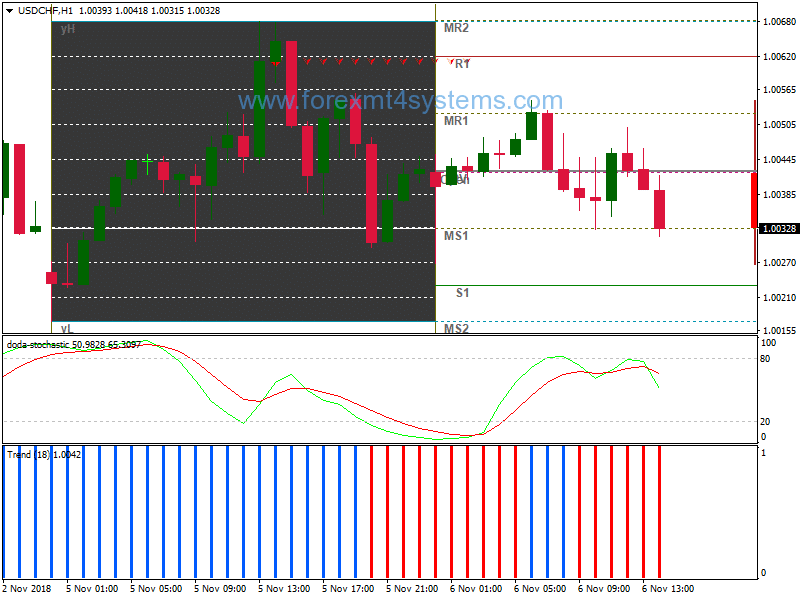- Have any questions?
- 057 21 20 555
- 0100 81 88 681
- almohandes.furniture@gmail.com
Calls in Advance: 4 Accounting Entries
Calls in Advance: 4 Accounting Entries
Contents:


Call in arrears can be recovered, and call in advance can be adjusted in the future.
- As against, in case of calls in advance, the company’s call on installment is awaited, but one or more shareholders have paid them beforehand.
- Table A of the Companies Act provides for the payment of interest on calls in advance at a rate of 12% per annum.
- Companies can charge interest on all such calls in arrears for the period that the amount remains unpaid.
Show the necessary https://1investing.in/ entries to record the above transactions and show how these appear in Balance Sheet. The articles and research support materials available on this site are educational and are not intended to be investment or tax advice. All such information is provided solely for convenience purposes only and all users thereof should be guided accordingly.
Example: Calls in Arrears and Calls in Advance
As against, Calls in advance refer to the amount received by the company against calls not yet made by the company. The Money received by the company in excess of what has been called up is known as “CALLS IN ADVANCE”. A Company may, if authorised by its Articles, accept calls in advance from its shareholders. If such an amount, which has not been called, is received, such amount to be credited to a separate account known as CALLS-IN-ADVANCE ACCOUNT. Money received in excess on shares partially allotted was retained to the extent possible.
A company, if authorized by its articles, may accept calls in advance from shareholders. The money received by a company in excess of what has been called up is known as calls in advance. Khushboo, holder of 600 shares paid the full amount on application, and Nisha to whom 500 shares were allotted paid the First & Final Call money along with allotment. The amount is known as paid-up capital, and the charge of interest at 10% p.a is chargeable in the call of arrears. Though, it depends on the provision of the articles of the company itself.
Also, no dividend is allowed to the shareholder on the amount paid as calls in advance. The amount of allotment and calls must be paid by the shareholders on the due date. However, if the shareholder fails in the payment of the amount due within the prescribed time, then that amount is called Calls in Arrears or Unpaid Calls. In this post, the difference between calls in arrears and calls in advance has been discussed. All moneys up to allotment were duly received, but as regards the call of Rs 25, a shareholder holding 100 shares did not pay the amount due. Another shareholder who was allotted 150 shares paid the entire amount of the shares.
For example, if the total capital of ABC Ltd. is ₹10,00,000 and is divided into 10,000 units of ₹100 each. To easily identify the shares, it is essential to give them numbers. The share of a company is moveable in nature and can be moved through the process stated by the Articles of Association of the Company. There is no question of authorization in articles of association arises in calls in arrears. Conversely, the company accepts calls in advance provided the articles of association of the company authorizes it. Here, it is to be noted that, as per the Companies Act, 2013, a company can only accept calls in advance from a shareholder only if the company’s articles of association authorizes to do so.
It arrived separately in the balance sheet as the liabilities section on it. A group of people makes a company that contributes money to their common purpose. The contributed money is the share capital by the company, and the contributors are the shareholders. A company that shares and receives money upon such share application and further dues is known as share call money which can be arrears or advances.
A company may pay interest on such amount received in advance at the rate of 6% p.a. The amount so received will be adjusted towards the payment of calls as and when they become due. If any amount, called in respect of a share, is not paid before or on the date fixed for payment thereof, such amount which is not paid, is called “CALLS-IN-ARREARS”.
Journal Entries
In case of calls in arrears, the company has called the installment but has not received it from one or more shareholders. As against, in case of calls in advance, the company’s call on installment is awaited, but one or more shareholders have paid them beforehand. When the shareholder fails to pay the call money due on allotment or on subsequent calls, the unpaid amount is called calls in arrears.
Fact Sheet: Celebrating Mental Health Awareness Month 2023 – HHS.gov
Fact Sheet: Celebrating Mental Health Awareness Month 2023.
Posted: Wed, 03 May 2023 20:59:35 GMT [source]
The company directors have the right to cut off or wave off the interest rate on arrears calls. Calls in advance is shown separately, in the Balance Sheet as liability of the company under the heading ‘Current Liabilities’ until the calls are made and the amount actually becomes payable by the shareholder. There are instances when the shareholders pay in the advance partial or full amounts of the calls, which is not yet made by the company. Then the amount received beforehand is termed as Calls in Advance. On applying for shares of a company, a company makes a valid offer and when the company accepts the application and allots these shares to that applicant it turns out as a valid contract between the company and the applicant. And the shareholder becomes liable to pay the entire sum due on the shares held by him/her.
Once this amount is transferred to the relevant accounts the calls in advance are closed. Companies record these items with the journal entry of debit to the amount due, then credit cash or account receivable. If interest is being charged then a separate account called “interest in arrears” or “interest in advance” should be debited and credit to the capital accounts. When shareholders or a company demand the payment regarding a portion or share, it can be understood as a call.
What happens if a call isn’t paid?
The company can charge interest on all such calls in arrears for the period the amount remain unpaid at the rate of 5% p.a. The total of Calls- in-Arrears is shown in the Balance Sheet as a deduction from the Called up Capital. In this article we will discuss about the accounting entries for call-in-arrears and calls-in-advance, explained with the help of an illustration. The directors made the allotment in full to applications demanding 10 or more shares, and they returned the money to applications for 6,000 shares.
Table A of the Companies Act provides for the payment of interest on calls in advance at a rate of 12% per annum. The amount received through the call in advance is known as the company’s liabilities. The company is liable to pay the interest in the amount from the date of receiving till the date of due payment. 12% p.a rate of interest is charged on these calls in advance, and the company’s article agrees.
It comes under the name of current liabilities till the calls are made, and the amount becomes payable by the shareholders. When the shareholder pays more money than called by the company on the shares held by him, the excess amount so received is termed as calls in advance. Further, the amount received in advance is a liability for the company and so it is indicated separately at the liabilities side of the balance sheet and not included in the capital. At times, the company’s shareholder pays a portion or full of the amount due on the shares held in advance.
Oncolytics Biotech® Reports First Quarter 2023 Financial Results … – BioSpace
Oncolytics Biotech® Reports First Quarter 2023 Financial Results ….
Posted: Fri, 05 May 2023 11:24:09 GMT [source]
Calls in advance are a liability for the company that represents the uncalled money received in advance from shareholders. Hence, it appears on the liabilities side of the balance sheet under the head Current Liabilities and subhead other current liabilities. The amount that the company does not call should not be credited to the capital account. It appears separately on the company’s balance sheet as its liabilities. Once the amount gets transferred to the account, it can be known as the call in advance is closed.
If any failure or default arises to send the call money, it may be known as the calls in arrears. For the calls in arrears, a separate account should be opened and maintained. Since the amount received as calls-in-advance is a liability of the company, it is liable to pay interest on the calls-in-advance from the date of receipt of the amount till the date when the call becomes due for payment. If the Articles of the Company are silent about the rate of interest on calls-in-advance, then rate of interest is 6% p.a. Such an interest is a charge on profits and has to be paid to the concerned shareholder even if there is no profit. It is quite obvious that the amount received in advance indicates the liability of the company and needs to be credited to Calls in advance A/c.
The amount of calls in advance is 12%, and the interest has to be paid to the shareholder, even if the company has not made any profit or earned any profit. The meaning of calls in advance is that the excess amount received by the company exceeds what has been called up. They appear separately, in the Balance Sheet as the company’s liability.
As against, when the company maintains a separate call-in arrears account, then the unpaid amount is transferred to the Calls in Arrears Account. If such an amount, which has not been called, is received, the amount should be credited to a separate account known as the calls in advance account. The total of calls in arrears is shown in the balance sheet as a deduction from the called-up capital. If any amount that is called in respect of a share is not paid before or on the date fixed for payment, such an amount is known as calls in arrears. A unit of capital or an equal portion of the share capital of an organisation divided, whose ownership is evidenced by a share certificate is known as a Share. Simply put, shares are the denominations of the share capital of an organisation.
If some interest on call in advance is called upon for shares and is not paid before a specific due date, it will be called by the name ‘call in arrears’. Calls in advance are the advanced payment or excess payment made to the called due is known as ‘calls in advance’ which can not be shown by the company as capital unless such is due from the shareholders. In case of any default, the amount is called as Calls in arrears and a separate Calls in Arrears Account has to be opened, to make the call in arrears entry. Is charged on all such calls in arrears until the amount is repaid.
If authorised by the articles, a company may receive from a shareholder the amount remaining unpaid on shares, even though the amount has not been called up. It is a debt of a company until the calls are made and the amount already paid is adjusted. Of course, the company can retain only so much as is required to make the allotted shares fully paid ultimately.

And in the future, when the call is actually made by the company, the amount received from the shareholders in advance is adjusted towards the payment of calls. Calls in arrears account have a debit balance, this is due to the fact that calls in arrears are an asset for the company. Conversely, calls in the advance account have a credit balance, because it is a liability for the company.
Jordan ambassador nominee Yael Lempert questioned on Sbarro … – Jewish Insider
Jordan ambassador nominee Yael Lempert questioned on Sbarro ….
Posted: Fri, 05 May 2023 06:39:02 GMT [source]
Show the journal entries needed to record the above transactions, including cash, and show how these appear in the balance sheet. All money up to allotment was duly received, but regarding the call of $25, a shareholder holding 100 shares did not pay the amount due. A company may pay interest on such amounts received in advance at the rate of 6% p.a. Companies can charge interest on all such calls in arrears for the period that the amount remains unpaid. It is the amount which is received in advance before the amount is due from shareholders.
